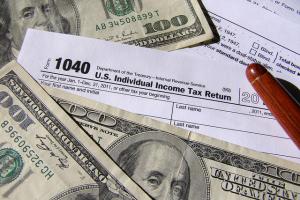Note: This article is the eighth in an ongoing series for Angel Investors. To learn more about developing the key skills needed to make great investments, download this free eBook today Angel 201: The 4 Critical Skills Every Angel Should Master or purchase our books at Amazon.com.

As we all know, the United States IRS tax code is extremely complex. Because the code includes some provisions directly affecting angel investing, understanding the tax rules is important for US-based angel investors. There are significant tax savings for angel investors who understand the rules. In addition, there are some tax rules that could cost you if you don’t understand what you are getting into.
A full vetting of all the angel tax issues is beyond the scope of this article, but we will give you a high level overview of issues to be cognizant of. Furthermore, IRS tax rules are in a constant state of flux. This article will discuss the rules as of 2020. We can’t recommend strongly enough that you hire an accountant who understands the tax rules for investments in Qualified Small Business Stock (QSBS).
Q: Ham, let’s start with our favorite section in the IRS tax code. What can you tell us about Section 1202?
By far the biggest tax benefit for US investors in early stage companies falls under IRS Tax Code Section 1202. This tax provision allows for the exclusion of up to 100% of your capital gains for your US Federal taxes. As long as you hold your stock for a minimum of 5 years before the sale occurs, your capital gains exclusion is calculated as follows:
-
Acquired between 8/10/1993 and 2/17/2009: 50% Exclusion
-
Acquired between 2/18/2009 and 9/27/2010: 75% Exclusion
-
Acquired after 9/28/2010: 100% Exclusion
Currently, this tax benefit has no end date. The US Congress tends to decide on these types of tax provisions on an annual basis. So we will have to wait to see if it gets extended beyond the end of 2018. For more details on this important tax benefit, take a look at an article we published a while ago.
Q: There’s another section that is useful to know about when you have a winning exit. What’s the deal with Section 1045?
Many of you are familiar with the fact that you can reduce the amount of taxes on your capital gain from selling your primary residence as long as you purchase a new home within 24 months of the sale of your original home. There is a similar “rollover” provision for QSBS investments called Section 1045.
This provision allows you to avoid paying any capital gains as long as you put all of your gains into a new QSBS investment within 60 days. Furthermore, the holding period of the replacement stock includes the holding period of the stock you just sold. This is a great way to help you get the preferential tax treatment of Section 1202 for your long term capital gains. But be careful… don’t let the tax tail wag the investment dog. The 60 day window is very short, so you shouldn’t jump into a new investment just to save on your taxes. That’s a great way to turn those gains into a big loss!
Q: I had a big loss in my portfolio last year. Are there any tax benefits that I should be aware of?
It’s never fun writing off one of your investments, but it happens about half the time in a portfolio of early stage investments. In the worst case scenario, you can write off your losses vs. any capital gains you receive in the calendar year. But there is a provision in the tax code, called Section 1244, that allows you to write off your losses vs. the higher earned income tax rate. That can make a big difference since capital gains are taxed around 20% and earned income rates can be as high as 39%.
In order to take advantage of Section 1244, your investment must be part of the initial $1M invested in a QSBS company. It’s important to document and track the fact that you qualify as early as you can. Seraf helps you with this tracking by: 1) asking when you record a new investment whether it’s 1244 qualified and 2) allowing you to store any documents you might have to prove that your investment was 1244 qualified in case your tax returns are audited.
For more details on this important tax benefit, take a look at an article we published a while ago.
Q: Are there any tax issues investors should be aware of when they invest in Convertible Notes?
Yes, there are! There are three areas you need to be aware of.
-
You may have to recognize, and pay tax on, interest payments accruing on your note even though you didn’t receive any cash payments from the company.
-
In most cases, no capital gain is recognized when the note is converted to stock, but the conversion of the note does trigger interest income recognition even if the interest is paid in stock vs. cash.
-
Be careful when warrants are issued along with the convertible note. The value assigned to the warrants has the effect of creating a discount on the note (since the warrants have to have some value and you are paying the same as other note holders not getting warrants), and therefore, some income reporting associated with the imputed income of getting a note below fair market value.
So, make sure you have an accountant who understands the complexities of QSBS investments. You want to make sure you don’t get tripped up by an IRS audit!
Want to learn more about building an angel portfolio and developing the key skills needed to make great investments? Download Angel 101: A Primer for Angel Investors and Angel 201: The 4 Critical Skills Every Angel Should Master for free, or purchase our books at Amazon.com.

